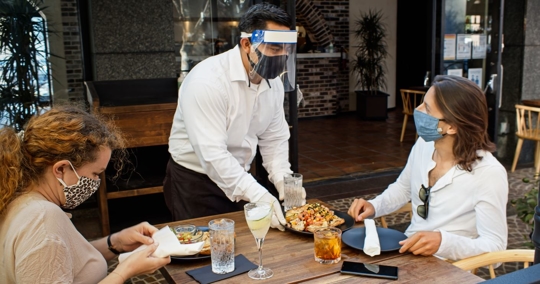The Ohio Department of Taxation is committed to ensuring restaurants, just like other businesses, comply with their sales tax obligations. Restaurant owners need to be aware of sales tax laws to prevent the burden of state sales tax audits. The current state sales tax rate in Ohio is 5.75% plus local sales tax of up to 2.25%. With 555 local tax jurisdictions in the state, restaurants have to be extra keen on collecting the correct sales tax amount.
In general, most food items are exempt from sales tax in Ohio except if they are consumed on the premises where they're purchased. The food items exclude soft drinks as food, although they are taxable.
Definition of Food
Auditors define food as a substance that can be in liquid, solid, concentrated, frozen, dehydrated, or dried form for sale to humans for ingestion or chewing as well as for taste and nutritional value. This excludes alcoholic beverages, soft drinks, dietary supplements, or tobacco.
Soft drinks are defined as nonalcoholic beverages with added natural or artificial sweeteners, not containing milk or milk substitutes, or containing over 50% volume of vegetable or fruit juice.
Food Items Included in Sales Tax for Restaurants
As established, food items purchased and consumed on the premises are taxable. These include baked goods, pastries, ice cream, cookies, and frozen yogurt. For clarity purposes, taxability applies if a restaurant offers a seating area for customers, including a food truck. Retail sales of soft drinks at all times are taxable whether they are consumed on the premises or not.
The tax department advises that restaurant owners ask the customer if the food is "to go" or "for here" to determine if they should tax. If it's "for here", then they need to charge and collect an eat-in tax, which is simply a sales tax. To further understand more about how sales tax applies with regards to eating on-premises, please check this release.
Non-Taxable Food Items
These food items are non-taxable in Ohio:
- Food or vegetable juice containing over 50% fruit or vegetable content
- Bottled, unsweetened water
- Ice sold at convenience, grocery, or other similar stores
- Mints and chewing gum
- Beverages with sweeteners containing milk, products made from milk, or milk alternative
Ways to Prevent an Assessment or Audit
Operating as a restaurant owner in Ohio will likely increase the chances of being audited by the Ohio Department of Taxation. However, restaurants and bars can take the following steps to avoid being subject to sales tax liability.
The first step is to compare your Ohio sales tax return to any other related data. Make sure you can access your federal income tax return and 1099-k to make sure they reconcile and to stay a step ahead of the auditor. Use the data to make a comparison against your sales tax return. Or, you can opt to hire our sales tax experts to help you through the process. Should there be any inconsistencies, we can look into either voluntary disclosure or amending returns.
We recommend that you apply for the Ohio Voluntary Disclosure Program if your 1099-k's and federal income tax return considerably exceed your sales tax return. The voluntary disclosure program allows your business to avoid penalties and audits from the revenue department. Take advantage of the full voluntary disclosure if there's no notice from the DOT or you have no tax liabilities.
If You Do Face an Audit
Do not wait until you get a letter from the DOT to prepare for the audit. Expect that during the auditor's visit, they will check your federal income tax returns, your 1099-k, and your POS reports against your sales tax returns. We advise against submitting any documentation to the auditor as this will lead to an inflated sales amount. Answer confidently and reasonably when questioned about declining access to the documentation.
Establish the accuracy of your nontaxable sales. Your 1099-k may record tips as the key nontaxable item. Usually, 1099-ks record the total dollars you've received through a credit card from a designated bank. Always have a tips breakdown so that the whole report remains untaxable by the auditor. Retrieve Your IRS W-3 to check the tips received by your employees.
Documentation for Ohio Sales Tax for Restaurants
Take note of any documents you avail to the auditor. For a sales tax audit, avoid oversharing information but only what reflects your reasonable sales figures. We regularly see restaurants unnecessarily providing documents to the Ohio DOT, which places them at high risk. Over-providing documentation will increase the chances of being slapped with an overstated sales tax assessment. The best option is to seek a sales tax professional who can submit only the relevant documentation.
Avoid making rash decisions such as continuing with the audit or paying for an assessment. It's better to first consult a professional who knows the ins and outs of Ohio sales tax audit. Otherwise, this will waive your right to an audit review.
Learn More About Ohio Sales Tax for Restaurants
The Ohio Department of Taxation will be intent on seeking third-party reporting to improve sales tax compliance. Restaurant owners should prepare adequately in case they undergo sales tax audits. It's also vital to have a better understanding of the department's audit procedures.
Sales Tax Helper is ready to offer you Ohio sales tax help. We will work with you around the clock to ensure your restaurant business operates within the correct sales tax boundaries. Get in touch with us today.

